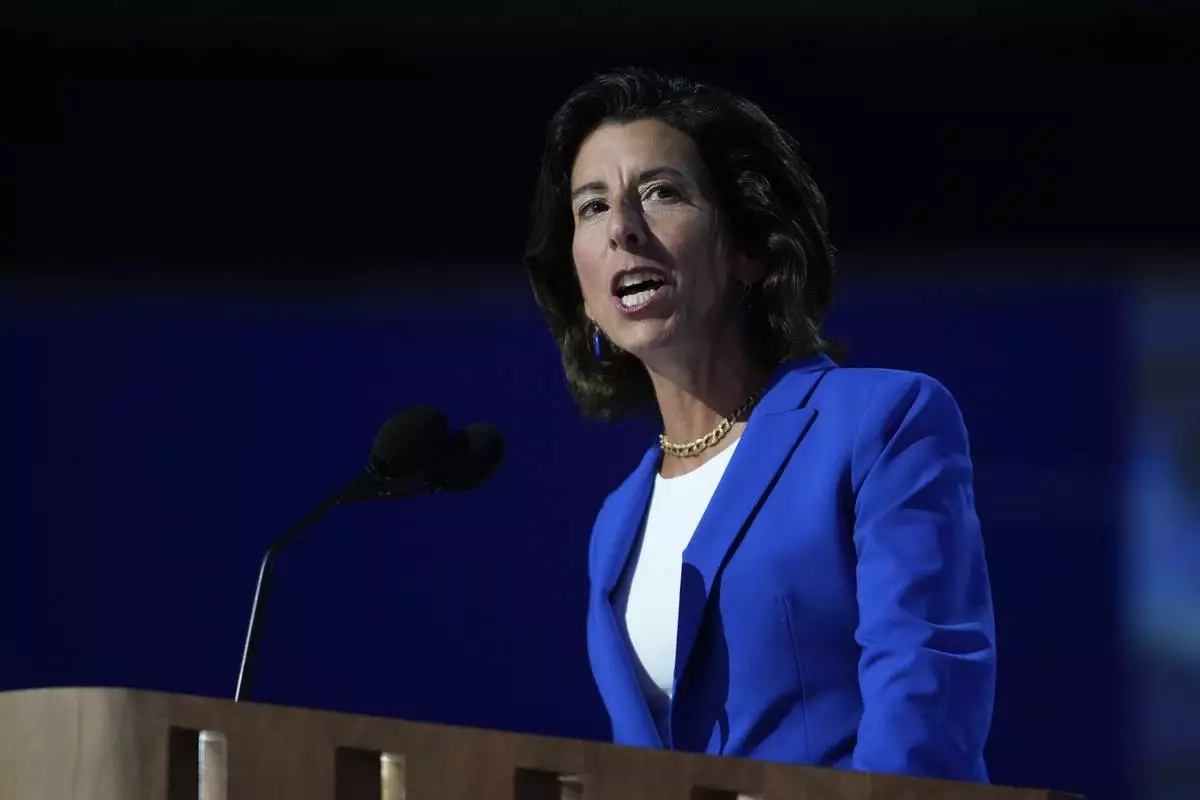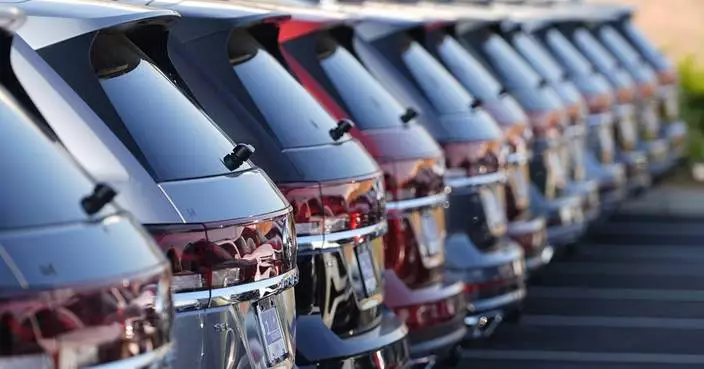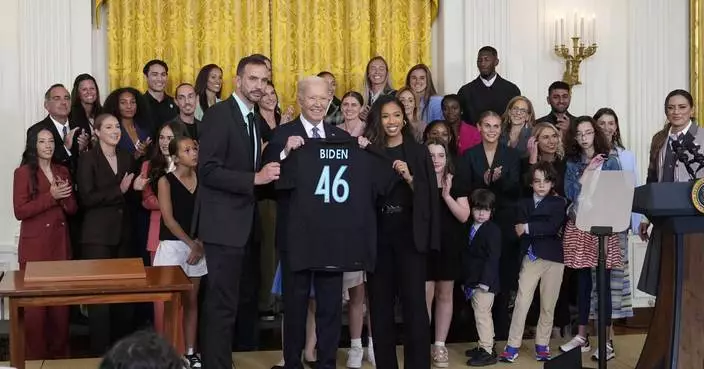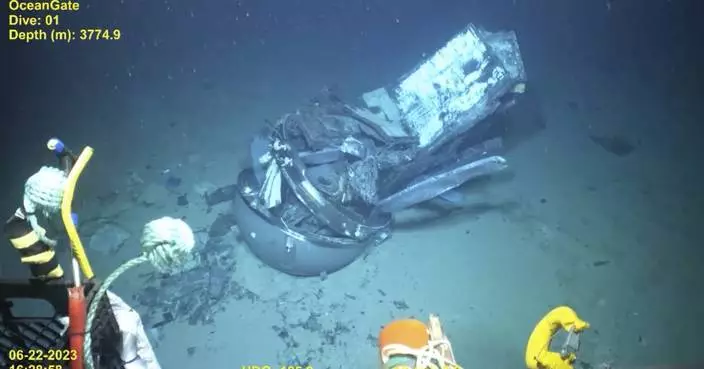MALAGA, Spain (AP) — Rafael Nadal and Carlos Alcaraz were named to Spain's roster for the Davis Cup Finals on Monday, raising the possibility of a renewal of their “ Nadalcaraz ” doubles partnership from the Paris Olympics.
Nadal, a 22-time Grand Slam champion who is 38, hasn't competed anywhere since the Paris Games, where he lost in the second round of singles to longtime rival Novak Djokovic and paired with Alcaraz to get to the quarterfinals of men's doubles before exiting against Americans Austin Krajicek and Rajeev Ram.
Nadal then withdrew from the U.S. Open and the Laver Cup while still dealing with health issues that have limited him to competing only sparingly over the past two seasons.
Alcaraz earned the men’s singles titles at the French Open in June and Wimbledon in July to raise his career total to four at the age of 21.
Spain will take on the Netherlands in the quarterfinal round of the Davis Cup Finals, an eight-team event Nov. 19-24 in Malaga, Spain.
The other opening matchups are: defending champion Italy vs. Argentina; the United States vs. Australia; and Germany vs. Canada.
Italy will be led by No. 1-ranked Jannik Sinner, who won the Australian Open in January and the U.S. Open this month. The Italian roster also includes Lorenzo Musetti, a semifinalist at Wimbledon and bronze medalist at the Olympics.
The U.S. roster features Taylor Fritz, the runner-up to Sinner at Flushing Meadows, along with past major semifinalists Tommy Paul and Ben Shelton, plus doubles specialists Krajicek and Ram.
The Italy-Argentina winner will face the U.S.-Australia winner in the semifinals, with the winners of Germany-Canada and Netherlands-Spain meeting in the other semifinal.
Italy won its first Davis Cup title since 1976 a year ago in Malaga.
AP tennis: https://apnews.com/hub/tennis

Team Europe's Carlos Alcaraz returns to Team World's Taylor Fritz on the third day of the Laver Cup tennis tournament, at the Uber arena in Berlin, Germany, Sunday, Sept. 22, 2024. (AP Photo/Ebrahim Noroozi)

FILE - Rafael Nadal reacts waves after the men's doubles quarter-final tennis competition at the Roland Garros stadium, at the 2024 Summer Olympics, July 31, 2024, in Paris, France. (AP Photo/Manu Fernandez, file)

Rafael Nadal and Carlos Alcaraz are on Spain's roster for the Davis Cup Finals

Rafael Nadal and Carlos Alcaraz are on Spain's roster for the Davis Cup Finals
NEW YORK (AP) — The Commerce Department said Monday it's seeking a ban on the sale of connected and autonomous vehicles in the U.S. that are equipped with Chinese and Russian software and hardware with the stated goal of protecting national security and U.S. drivers.
While there is minimal Chinese and Russian software deployed in the U.S, the issue is more complicated for hardware. That’s why Commerce officials said the prohibitions on the software would take effect for the 2027 model year and the prohibitions on hardware would take effect for the model year of 2030, or Jan. 1, 2029, for units without a model year.
The measure announced Monday is proactive but critical, the agency said, given that all the bells and whistles in cars like microphones, cameras, GPS tracking and Bluetooth technology could make Americans more vulnerable to bad actors and potentially expose personal information, from the home address of drivers, to where their children go to school.
In extreme situations, a foreign adversary could shut down or take simultaneous control of multiple vehicles operating in the United States, causing crashes and blocking roads, U.S. Secretary of Commerce Gina Raimondo told reporters on a call Sunday.
“This is not about trade or economic advantage,” Raimondo said. “This is a strictly national security action. The good news is right now, we don’t have many Chinese or Russian cars on our road."
But Raimondo said Europe and other regions in the world where Chinese vehicles have become commonplace very quickly should serve as “a cautionary tale” for the U.S.
Security concerns around the extensive software-driven functions in Chinese vehicles have arisen in Europe, where Chinese electric cars have rapidly gained market share.
“Who controls these data flows and software updates is a far from trivial question, the answers to which encroach on matters of national security, cybersecurity, and individual privacy,” Janka Oertel, director of the Asia program at the European Council on Foreign Relations, wrote on the council’s website.
Vehicles are now “mobility platforms” that monitor driver and passenger behavior and track their surroundings.
A senior administration official said that it is clear from terms of service contracts included with the technology that data from vehicles ends up in China.
Raimondo said that the U.S. won't wait until its roads are populated with Chinese or Russian cars.
“We're issuing a proposed rule to address these new national security threats before suppliers, automakers and car components linked to China or Russia become commonplace and widespread in the U.S. automotive sector,” Raimondo said.
It is difficult to know when China could reach that level of saturation, a senior adminstration official said, but the Commerce Department says China hopes to enter the U.S. market and several Chinese companies have already announced plans to enter the automotive software space.
The Commerce Department added Russia to the regulations since the country is trying to “breathe new life into its auto industry,” senior administration officials said on the call.
The proposed rule would prohibit the import and sale of vehicles with Russia and China-manufactured software and hardware that would allow the vehicle to communicate externally through Bluetooth, cellular, satellite or Wi-Fi modules. It would also prohibit the sale or import of software components made in Russia or the People's Republic of China that collectively allow a highly autonomous vehicle to operate without a driver behind the wheel. The ban would include vehicles made in the U.S. using Chinese and Russian technology.
The proposed rule would apply to all vehicles, but would exclude those not used on public roads, such as agricultural or mining vehicles.
U.S. automakers said they share the government's national security goal, but at present there is little connected vehicle hardware or software coming to the U.S. supply chain from China.
Yet the Alliance for Automotive Innovation, a large industry group, said the new rules will make some automakers scramble for new parts suppliers. “You can't just flip a switch and change the world's most complex supply chain overnight,” John Bozzella, the alliance's CEO, said in a statement.
The lead time in the new rules will be long enough for some automakers to make the changes, “but may be too short for others,” Bozzella said.
Commerce officials met with all the major auto companies around the world while it drafted the proposed rule to better understand supply chain networks, according to senior administration officials, and also met with a variety of industry associations.
The Commerce Department is inviting public comments, which are due 30 days after publication of a rule before it's finalized. That should happen by the end of the Biden Administration.
The new rule follows steps taken earlier this month by the Biden administration to crack down on cheap products sold out of China, including electric vehicles, expanding a push to reduce U.S. dependence on Beijing and bolster homegrown industry.
AP Business Writers David McHugh in Frankfurt, Germany, and Tom Krisher in Detroit contributed to this report.

FILE - Gina Raimondo, U.S. Secretary of Commerce, speaks during the Democratic National Convention on Aug. 19, 2024, in Chicago. (AP Photo/Paul Sancya, File)














